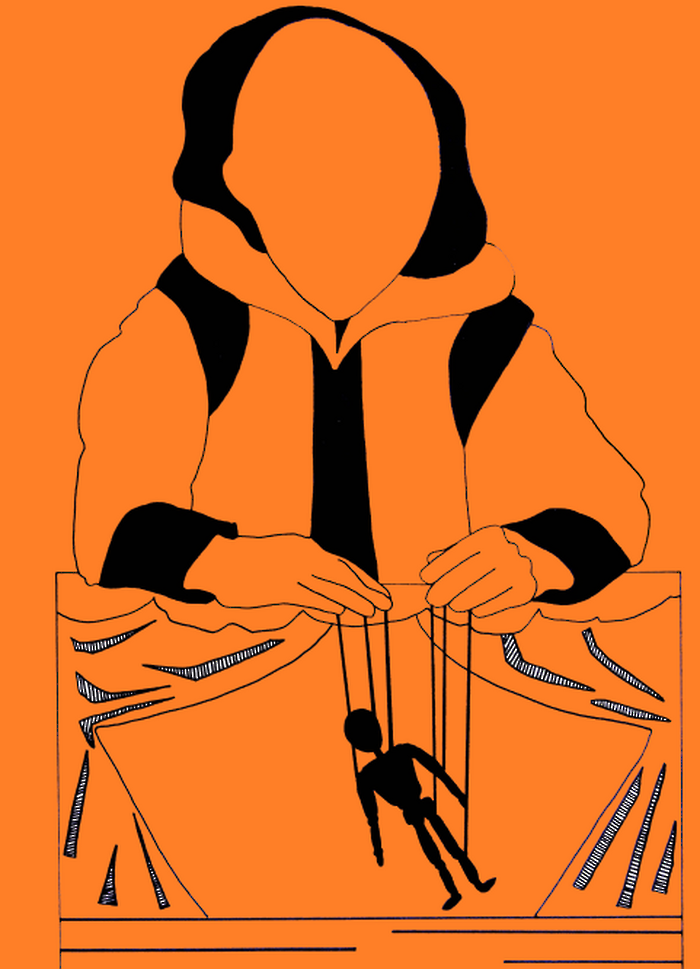Footlights Spring Revue: Last Resort review
These graduating Footlights acquit themselves well in this highly entertaining sketch show, even if it does stray from its hotel setting

The annual Spring Revue is a big deal, and if anyone is going to make a song and dance about it, it’s the Footlights. The opening number was a lively way of setting the tone, introducing the ensemble cast, and playing with Emily Senior’s cute and versatile set, which was well used and brought the performers further downstage.
The fun begins with a tech-reliant sketch, and it is refreshing to hear well-timed, good quality sound clips. Both lighting and sound, designed by George Jeffreys, should be highly commended, keeping pace in and between sketches. Will Bicknell-Found was well chosen to open the show, with consistent, confident delivery and stage presence. The first sketch transitions are slightly uneasy because they seem so randomly ordered. It unfolds that the hotel set is just for show - pun intended because ‘last resort’ as a concept seems like an afterthought in a show with no running narrative, and few relevant sketches. But honestly, who cares? (Unless, that is, you had particularly wanted to see something entirely hotel-based.) It seems a strict theme might have corseted this mammoth sketch show, and that’s very tricky to maneuver. Rather, the format benefitted from quickly departing from the concept, as it afforded greater scope to demonstrate each performer’s individual style. For this reason, this review will not mention any spoiling specificities of the sketches because it is in their ingenuity and weirdness that most of their humour is found. (Indeed, the sketches seemed more often to relate to cannibalism or childhood than hotels!)
Noah Geelan’s flat-out commitment to an early sketch cannot fail to win the audience over. He holds our attention whenever he’s onstage, partially because he is unafraid of working with silences which house some of his best sketches, and partially because he has a great command of timing, tone and expression. Emma Plowright and Comrie Saville-Ferguson are the two other standout character comedians of the show. Plowright is understated in her delivery which works well with her style of comedy that doesn’t rely on punchlines as much as unforeseeable twists; the audience must hang onto every word she says and so she creates the environment for spontaneous, surprising laughter. At the opposite end, Saville-Ferguson demands equally real, unexpected laughs but from the sheer zaniness of his sketches and characters which heighten tropes or convention into absurdity and hilarity.
However, the first act was a little rocky with a varying quality of sketches which, although the performers did well to regain momentum and confidence from the audience, undermined a lot of potentially strong sketches. Some performers forgot or stuttered over their lines which, at times, hindered the pace and audience’s trust, and while they were able to spin jokes from it, certain scenes, though few, could do with more rehearsal. The ‘adoption’ and ‘postman’ sketches seemed to last far too long, worsened by jokes that repeatedly failed to land.
Ania Magliano-Wright took a while to find her groove, but finally came into her own with the RADA audience participation sketch. Stanley Thomas’s audience interactions and absurd shorts were fabulous. Gabriel Barton-Singer has the amazing quality of appearing as if he’s just wandered onstage and happened to be funny, which is a gift and a quality he would do well to retain. The monologues were very strong, most notably Joy Hunter’s ‘Police Dogs’ and Alex Franklin’s ‘Cluedo House’. However, it felt like they came at the expense of the stage time of other performers like Isambard Dexter and Danny Baalbaki who were somewhat underused though much appreciated when they were. For a revue, eleven is large cast, perhaps too large for a completely seamless and fairly-weighted show, but highly necessary as an inclusive opportunity to showcase Cambridge’s graduating comedians.
Patrick Wilson, Angela Channell and Rohan Sharma’s direction has rightly prioritised the individual strengths of the performers, making this a real celebration of the work produced by the group over the past three or more years. This is a bizarre and marvelous ride of a show where, if Hunter and Franklin’s sketches are anything to go by, anything goes. There are many first-rate sketches, and the second act is far more polished than the first. Finally, it’s important to remember that these performers weren’t ‘Footlights’ before they came to Cambridge, so regardless of your views towards the society, they simply must be praised for the hard work they have done and the impressive talents they have cultivated.
 Features / Cloudbusting: happy 10th birthday to the building you’ve never heard of30 March 2025
Features / Cloudbusting: happy 10th birthday to the building you’ve never heard of30 March 2025 News / Uni offers AI course for Lloyds employees30 March 2025
News / Uni offers AI course for Lloyds employees30 March 2025 News / Cambridge University Press criticises Meta’s ‘dismaying’ use of copyrighted material28 March 2025
News / Cambridge University Press criticises Meta’s ‘dismaying’ use of copyrighted material28 March 2025 News / Ski mask-wearing teens break into Caius accommodation27 March 2025
News / Ski mask-wearing teens break into Caius accommodation27 March 2025 Sport / Light Blues prevail in thrilling Varsity encounter29 March 2025
Sport / Light Blues prevail in thrilling Varsity encounter29 March 2025






